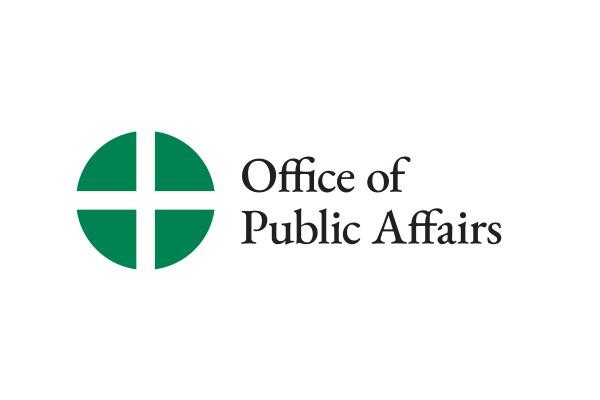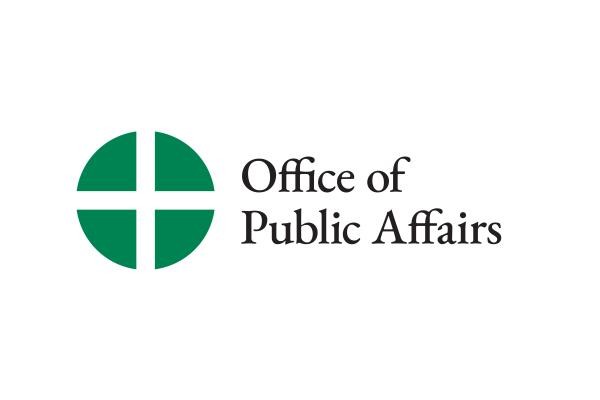Reformed-Catholic Dialogue Opens Discussion On Eucharist
WASHINGTON—The Seventh Round of the Reformed-Catholic Dialogue opened discussion on the Eucharist during its May 4-7 meeting in Washington. The dialogue also included review of an 80-page report on baptism based on five years of research.
WASHINGTON—The Seventh Round of the Reformed-Catholic Dialogue opened discussion on the Eucharist during its May 4-7 meeting in Washington. The dialogue also included review of an 80-page report on baptism based on five years of research.
Reformed co-chair, Rev. Richard Mouw of Fuller Theological Seminary, noted that the doctrine of the Church (ecclesiology) "looms large in any discussion of Eucharist" and can help Catholics and Reformed Christians clarify their positions and avoid polemical statements. He said that the Reformed Eucharist is more than a matter of symbolism. He also said that an ecclesiology that does not admit all Christians to the Lord's Table still divides the Reformed from other Christian communions, including Catholics.
Rev. John Riggs, a United Church of Christ theologian, said "the original Reformed tradition wanted Eucharist to be a means of grace by which the union among believers in Christ is enacted" and so the matter of Christ's presence in the bread and wine was of subordinate concern. Rev. Renee House of the Reformed Church in America pointed out that the Dutch Reformed Church sees the "Eucharist as a covenant meal at which the commitments of baptism are progressively deepened" in the course of a Christian's life.
Ralph Del Colle, Ph.D., of Marquette University, noted that the older formulas for the Eucharistic rite of the Evangelical and Reformed Church affirm the action of the Holy Spirit and suggest that the bread and wine are offered as an authentic memorial of the sacrifice of Christ. This is in contrast to the more reserved language of the United Church of Christ rite which articulates a sacrifice of thanksgiving in which believers, moved by the Holy Spirit, consecrate themselves to the service of others.
Many of the Reformed participants emphasized the action of the Holy Spirit, rather than of the presiding minister. They also insisted that there is no difference in the presence of Christ in the proclaimed Word and in the Eucharist.
Rev. Lydia Veliko, ecumenical officer of the United Church of Christ, cited pastoral experience and noted that Catholics who become Protestants often do not understand the depth of Catholic teaching, and Protestants who wish to gain an understanding of Catholic belief often have little knowledge of the authentic sources. Dialogue should provide materials that urge reconciliation and mutual respect, without diminishing divergences in belief and practice.
Rev. Mouw agreed that today, Reformed Christians are more willing than were previous generations to affirm that they encounter the presence of Christ in a distinctive way in the Eucharist; moreover, they are becoming more confident in affirming that Catholics and Reformed share in Christ's mission to the world. However, Reformed Christians refrain from the language of offering the Eucharist as a sacrifice to the Father, do not localize Christ's presence to the elements of bread and wine, and do not preserve the elements beyond the time of worship, in contrast to Catholic practice.
Participants agreed to work on separate drafts of a document addressing the following five areas: Action of the Holy Spirit in relation to the Eucharist, Remembrance in the Eucharist, Presence of Christ in the Eucharist, Whether the Eucharist is "offered" and Discipleship and the Eucharist.
Catholic dialogue participants include Ralph Del Colle, Ph.D., Sister Joyce A. Zimmerman, Franciscan Father Dennis E. Tamburello, Father Dennis McManus, Capuchin Father Thomas Weinandy, Father Francis V. Tiso. Bishop Patrick R. Cooney was absent for reasons of health.
Reformed Church in America participants included Rev. Renee House and Rev. John Paarlberg. Christian Reformed Church participants included Sue Rozeboom and Rev. Dr. Lyle Bierma. Presbyterian Church USA participants included Rev. Dr. Richard J. Mouw (co-chair), Rev. Dr. Martha Moore-Keish and Rev. Robina Winbush. United Church of Christ participants included Rev. Dr. Sidney D. Fowler, Rev. Dr. John Riggs and Rev. Lydia Veliko.
Rev. Dr. Scott Ickert was an observer from the Lutheran Evangelical Church of America.


